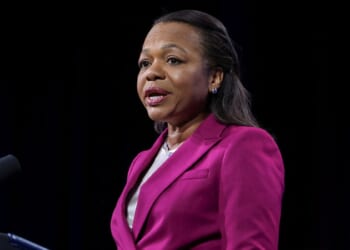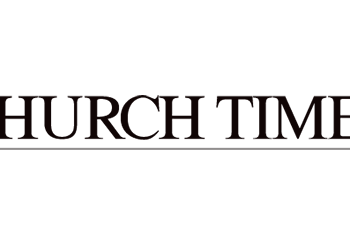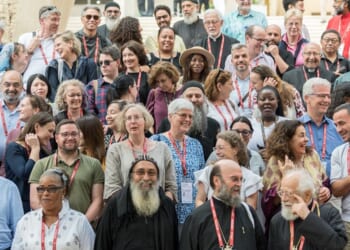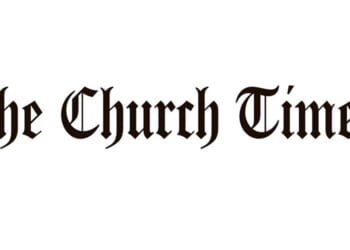(LifeSiteNews) — The Catholic Church should expect waves of Anglicans coming back to Rome, a former Anglican bishop said.
“(T)he Catholic Church should be prepared for new groups of Anglicans seeking union with it, as during previous conversion waves,” Monsignor Michael James Nazir-Ali said in a recent interview with OSV News.
Nazir-Ali is a former Anglican bishop who entered the Catholic Church in 2021 through the Personal Ordinariate of Our Lady of Walsingham and is now a Catholic priest.
The former Anglican prelate told LifeSiteNews what he believes are the main reasons for this influx of Anglicans into the Catholic Church.
“No church is perfect, but the main reasons for coming seem to have to do with continuity in apostolic teaching, a proper method in engaging with contemporary issues, without capitulating to the zeitgeist, and an adequate local and universal magisterium which can declare, clarify, and explain the faith of the Church, without changing it,” he said.
“There are other, more difficult to describe, reasons such as sacramental assurance and confidence in apostolic ministry which weigh more heavily for some,” Nazir-Ali told LifeSiteNews.
He said that this trend of Anglicans leaving the Church of England for Catholicism “is likely to continue.”
Despite some confusion in recent years, especially during the pontificate of Pope Francis, the security of the unchanging doctrine of the Catholic Church has a strong attraction for conservative Anglicans, who are faced with the moral and theological collapse of their church.
The recent appointment of the first female as the Archbishop of Canterbury was an inflection point, but it was in many ways just the tip of the iceberg. Sarah Mullally was named to the highest ecclesiastical position in the Anglican Church despite her being pro-abortion and pro-LGBT. However, the Church of England began “ordaining” women in 1994, and the first female “bishop” was appointed in 2014, so the phenomenon is not a new one.
A few months earlier, the openly lesbian Cherry Vann was named as the Archbishop of Wales.
While these appointments have been celebrated by progressives and the mainstream media, conservative factions of the Anglican Church, especially in Africa, have severed their ties to the Church of England over the heterodox, progressivist positions of Mullally and large parts of the British Episcopate.
READ: Conservative Anglicans break off from Church of England over LGBT ‘blessings’ in major split
This fallout among Anglicans represents an immense opportunity for the Catholic Church to attract many new members who are disillusioned by the Church of England’s heterodoxy and are seeking a safe haven of sound doctrine and tradition, Nazir-Ali argues.
Nazir-Ali recently spoke at the Global Anglican Future Conference, or GAFCON, a group that claims to represent at least half the global Anglican population of 85 million, who have split with the Church of England over the appointment of Mullally as Archbishop of Canterbury, since she teaches “unbiblical and revisionist teachings.”
“The Church of England has clearly decided to go the way of liberal Protestant denominations, abandoning any claims to be upholding the Catholic apostolic succession,” Msgr. Nazir-Ali said.
He told OSV News that GAFCON’s insistence on the autonomy of Anglican provinces deciding their own doctrine and giving their own interpretation of scripture as the “sole foundation of communion” will lead to future problems.
“The Catholic Church agrees Scripture is the highest authority in matters of faith — but relying on Scripture alone is dangerous,” he said. “Meanwhile, if each province is free to do what it likes, this is a recipe for chaos in today’s fast-changing world.”
For many, joining the Catholic Church will remain the only viable option, Nazir-Ali believes.
However, another famous Catholic convert from Anglicanism, the former chaplain of Queen Elizabeth II, Gavin Ashenden, offers a more cautious prediction.
In a recent article on his Substack, Ashenden says that while many leave the Church of England, joining the Catholic Church requires them to abandon their Protestant thinking, which will not be an easy task for many.
Former Anglicans must understand that the Catholic Church is not just another denomination but the one true Church founded by Jesus Christ.
“It’s this surrender — the giving up of opinions, or indeed the right to have opinions — that proves so profoundly unsettling and unaccommodating to the Protestant mind. It’s often too much,” Ashenden wrote. “Most Protestants stop there; they cannot accept the authority of the Catholic Church, which is, of course, the authority of Jesus and the Holy Spirit.”
“Learning an entirely new way of looking at Jesus, at Mary, at the Mass, at the supernatural, at the existence, power and influence of the Saints, and at the reality of evil — all this will require a revolution in the mind of the Protestant,” he said. “And simply being fed up that the Church of England no longer has any ethics or proper reference point of its own is insufficient.”
However, Ashenden still thinks the current crisis is an excellent opportunity for Catholics to reach Anglicans, and he suggested inviting them to Mass and to read the Catechism. He argued that Protestants need to learn about authentic history and philosophy before the Reformation in the 16th century and rid their minds of the propaganda they have been fed about the Catholic Church.
There are definitely hopeful signs in the U.K. already, as Gen Z Catholics now outnumber Anglicans by 2 to 1 in the country that severed its ties to the Catholic Church in 1534 under King Henry VIII. The number of Generation Z churchgoers in the UK has jumped from 4% in 2018 to 16% in 2025, marking a return to faith and a possible upward trend of more and more people of the younger generation embracing God and the Catholic faith.















